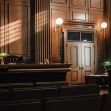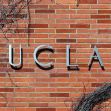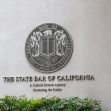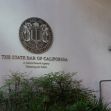The State Bar of California requires all students attending unaccredited law schools in the state to take the First-Year Law School Students’ Exam after they complete their first year of study. This exam, commonly known as the “baby bar exam,” is mandated by the State’s Committee of Bar Examiners and California Business and Professional Code §6060 (h) (1). The law requires all applicants who are not otherwise exempt to take and pass an examination of legal basics such as contracts, torts and criminal law.
Douglas Mercer Pell was an 81-year-old first-year student at the American Institute of Law in Torrance, an unaccredited law school. He did not take the baby bar until his sixth opportunity to do so because of “exigent circumstances,” including his responsibilities to care for his wife who had received a liver transplant. Once his wife’s condition had stabilized, Pell took and passed the baby on his first try.
As a result of his delay, Rule 6060 (h) (1) required him to forfeit 39 hours of credit for courses he had already completed and passed. When Pell learned of this rule, he petitioned the State Bar’s Director of Admissions, Amy Nuñez, asking for an exemption to the rule and its forfeiture clause due to his wife’s condition and his need to act as her caregiver. Nuñez denied his decision without explanation because the California Supreme Court has “exclusive original jurisdiction over matters of admission.”
Rather than petitioning the State Supreme Court for review, Pell sued Nuñez in federal court, alleging that her denial of an exemption violated his Fourteenth Amendment rights to equal protection, as well as substantive and procedural due process. Presiding District Judge Michael W. Fitzgerald of the U.S. District Court for the Central District of California dismissed his petition, concluding, as Nuñez had argued, that the court lacked subject matter jurisdiction and “did not result in a cognizable deprivation” of his rights. Fitzgerald did grant Pell leave to amend to bring a “facial challenge to the constitutionality of the State Bar’s Rule 6060 (h) (1), but Pell did not file a second amended complaint. Fitzgerald then entered judgment for Nuñez. Pell appealed.
Pell also filed state law claims based on California’s Unruh Civil Rights Act, Cal. Civ. Code §§ 51–52.
Pell’s case was heard by a three-justice panel of Ninth Circuit justices comprised of Circuit Judges Richard C. Tallman, Sandra S. Ikuta, and John B. Owens. Justice Ikuta wrote the opinion, which affirmed Fitzgerald in part and reversed him in part. Ikuta’s opinion explained that the Ninth Circuit agreed that the State Bar’s actions did not cause Pell to suffer a “cognizable deprivation under federal law.” She wrote that the State Bar “is the administrative arm of the California Supreme Court for the purpose of assisting in matters of admission and discipline of attorneys.” However, she clarified that the “power to grant or deny admission to the bar… is vested in the California Supreme Court alone.”
Because of this, the State Bar’s refusal to certify an applicant “does not deprive an applicant of any rights until the supreme court expressly or impliedly approves the refusal . . .so as to . . . have the effect of a denial of admission.” She further clarified that the California Supreme Court’s “inherent authority over admission “extends to direct review of “…determinations and recommendations of the in matters of . . . admission” generally.” It follows that Rule 6060 (h) (1) and the requirement to take the baby bar after the first year of study are “matters of admission that are part of the Supreme Court’s “inherent power and original jurisdiction.”
Ikuta then turned to the issue of subject matter jurisdiction, which was the reason for the reversal in part. She wrote that “a district court has jurisdiction over an action “arising under” federal law “when a federal question appears on the face of the complaint.” She noted that Pell’s first amended complaint did in fact “raise several questions of federal law,” referring specifically to Pell’s arguments that Nuñez’s interpretation of § 6060(h) (1) violated his Fourteenth Amendment rights. Ikuta wrote, “Because this case arises under the Fourteenth Amendment,” the “district court had subject matter jurisdiction” under several precedents.
The opinion concluded “that the district court erred in holding it lacked subject matter jurisdiction. Yet although “the district court incorrectly indicated that it lacked jurisdiction . . . (its ruling) does not compel a reversal.” Ikuta explained that “If the decision below is correct, it must be affirmed, even if the district court relied on the wrong grounds or wrong reasoning…Because we conclude that Pell’s federal law claims must be dismissed for failure to state a claim, we affirm the district court’s dismissal of those claims.”
One other issue was discussed, and it was the reason for the partial reversal. Pell’s asserted that his claims against Nuñez, based on the Unruh Civil Rights Act, could not be dismissed because the district court did not “have supplemental jurisdiction to decide this related state law claim.” To this, Judge Ikuta wrote that when a district court dismisses all claims over which it has original jurisdiction, it may decline to exercise supplemental jurisdiction over state law claims, such as those Pell filed regarding the Unruh Act.
Ikuta concluded that because Fitzgerald ruled it lacked original jurisdiction, it should not have also dismissed Pell’s Unruh Act claims because “…the decision to exercise supplemental jurisdiction is within the discretion of the district court and that court must be given the opportunity to make that decision.”
Pell will get a new, if smaller, day in court on the state law claims, while he decides whether to take the rest of his claims to the California Supreme Court, which he probably should have done initially.






